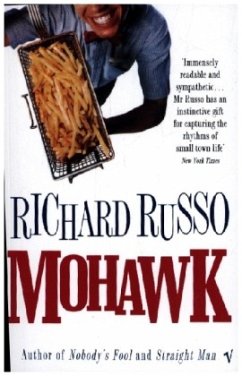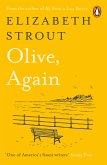'Immensely readable and sympathetic' New York Times
Author of the Pulitzer Prize winning Empire Falls
Mohawk, New York, is one of those small towns that lie almost entirely on the wrong side of the tracks. Its citizens, too, have fallen on hard times. Dallas Younger, a star athlete in high school, now drifts from tavern to poker game, losing money. His ex-wife, Anne, is stuck in a losing battle with her mother over the care of her sick father. And their son, Randall, is deliberately neglecting his schoolwork - because in a place like Mohawk it doesn't pay to be smart.
Mohawk chronicles over a dozen lives in a decaying leather town in upstate New York. It is a picture of life which is true for the whole world, and once viewed, will never be forgotten.
Author of the Pulitzer Prize winning Empire Falls
Mohawk, New York, is one of those small towns that lie almost entirely on the wrong side of the tracks. Its citizens, too, have fallen on hard times. Dallas Younger, a star athlete in high school, now drifts from tavern to poker game, losing money. His ex-wife, Anne, is stuck in a losing battle with her mother over the care of her sick father. And their son, Randall, is deliberately neglecting his schoolwork - because in a place like Mohawk it doesn't pay to be smart.
Mohawk chronicles over a dozen lives in a decaying leather town in upstate New York. It is a picture of life which is true for the whole world, and once viewed, will never be forgotten.
Russo's natural grace as a storyteller is matched by his compassion for his characters. Mohawk is lively reading; it is a painful story, yet it is told with great mischief - and the triumphs and the tragedies of the characters are enhanced as victories and defeats always are, by wit John Irving








